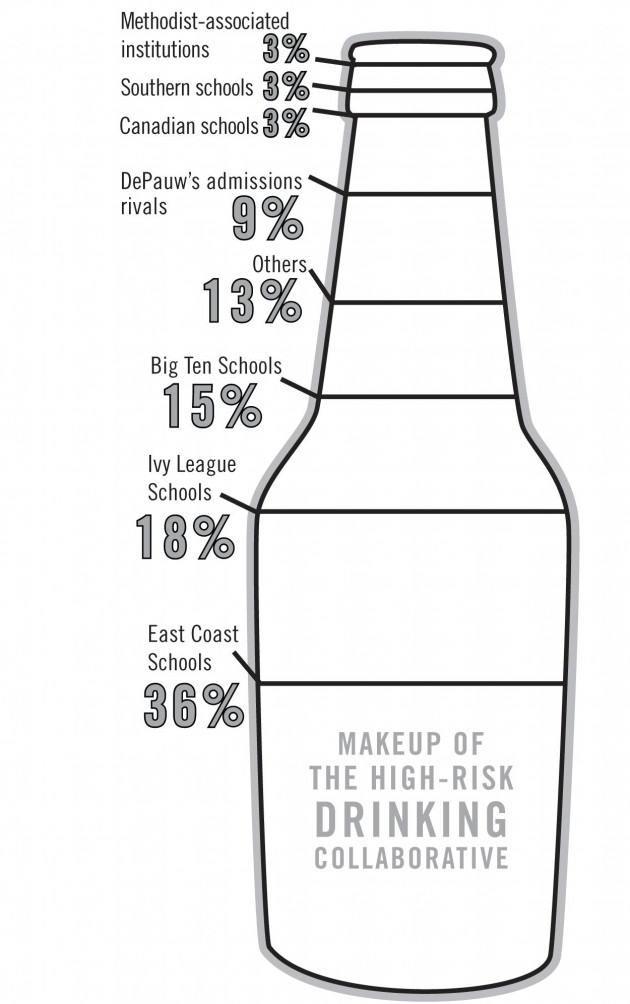
DePauw no longer has to face its drinking problem alone.
In an effort to reduce dangerous drinking on campus, President Brian Casey has allied DePauw with 32 colleges and universities in an initiative called the Learning Collaborative on High-Risk Drinking.
"It struck me as one of the most serious and thoughtful approaches that has emerged on the horizon in quite a while," Casey said. "There's real hope that some notion of best practices or some sort of steps can be promulgated and shared."
The collaboration stemmed from Dartmouth University President Jim Yong Kim's observation that Dartmouth students were undergoing serious issues with alcohol overconsumption. He sought a more effective solution.
According to the National College Health Improvement Project (NCHIP), Kim, who has a background in public health policy, believes college binge drinking is a public health threat rather than a behavior to be punished.
Casey agreed that treating binge drinking as a public health issue will yield better results.
"Binge drinking, instead of being looked at as something that should be punished, let's try to look at it as a public health matter," Casey said. "To have a significant number of members of any community engage in binge drinking becomes a public issue. Let's try that approach."
The NCHIP, which sponsored the Learning Collaborative on High-Risk Drinking, says it aims to bring "public health solutions and quality improvement methods to bear on the problem of binge drinking."
The collaboration reports that high-risk drinking is a persistent problem for four in 10 college students.
DePauw has been recognized as an institution with similar risk for its students. Notably, the Princeton Review ranked DePauw as the No. 15 "Party School" in its 2011 study.
Casey said the institutions involved in the collaborative will discuss methods of combatting alcohol abuse on campus.
Vice President for Student Services and Dean of Students Cindy Babington explained that DePauw teaches students about alcohol abuse and the administration reacts when overconsumption occurs.
But the existing campus programs have not completely solved the problem.
Babington said she hopes the collaboration will lead to better results.
"Colleges are dealing with the same issues regarding alcohol and most of us have a habit of using a ‘let's just try everything' kind of strategy," Babington said. "We don't really know what's working and what isn't."
One point DePauw will emphasize is the role of "bystander intervention," encouraging students to intercede before their intoxicated friends endanger themselves.
"Whether it will prevent people from going to the hospital or whether it might actually increase the number of hospital runs, if people are being more precautionary and calling for help sooner than they would have ... I think our ultimate goal is to reduce the level of high-risk drinking, period," Babington said.
Casey and Babington said that they entered the collaboration well-prepared.
Last spring, a committee began a report on alcohol use at DePauw. Its findings are due in the coming month. Babington mentioned that the committee's creation was a lucky coincidence.
"We didn't know about it at the time, but it was really helpful," Babington said.
The Learning Collaborative on High Risk-Drinking could not be reached by press time. Its offices were flooded by Hurricane Irene.


